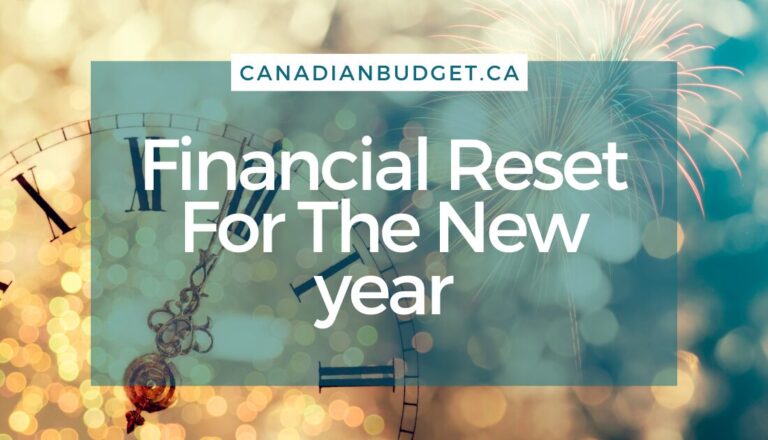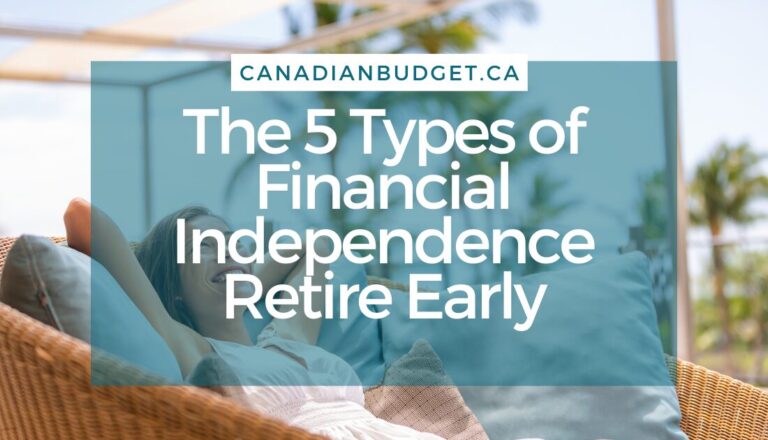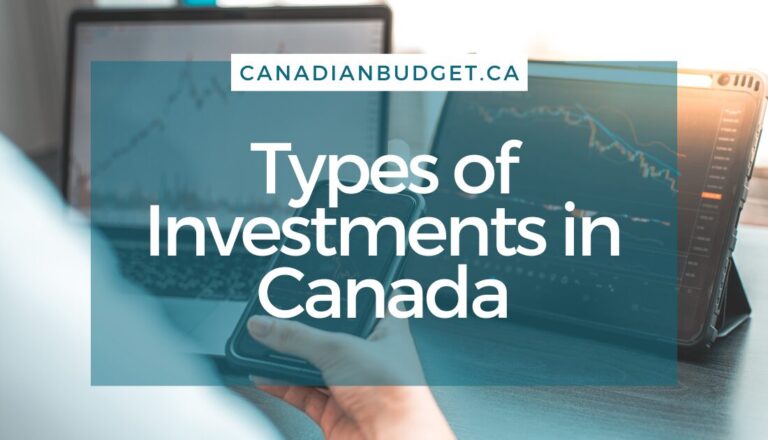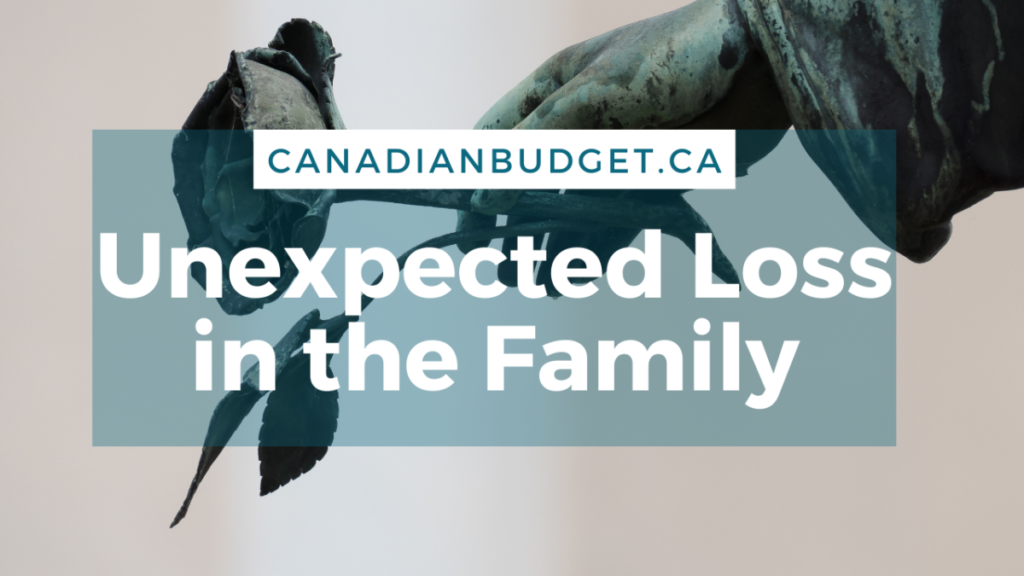Last year we tragically and unexpectedly lost a close family member, my father in law. As tough as it is for anyone to deal with a loss in the family, there are so many tasks that need to be done, logistically speaking, after someone passes away. Someone needs to make arrangements, update accounts and apply for necessary things. Dealing with these tasks on top of your own grief can be so overwhelming, we wanted to share some learnings from our experience.

Create a will, NOW
Table of Contents
ToggleEven if you aren’t that old and don’t have much in the way of assets, I urge you to make a will. Canadians, you can check out Willful Wills for 15% off your will, or make arrangements with a lawyer to have one made. Save it somewhere safe, make sure someone you trust has a copy of it or knows where to find it. We made one last year and it was easy to do. The only tough part was finding two witnesses who were not in our wills to sign for us during Covid.
Clarify your final wishes
In addition to your will, ensure you have a document that dictates your end-of-life wishes, if not included in the will. Have this discussion with your partner so they know what you want in terms of DNR’s, organ donation, burial or cremation. These things are not always detailed in the will. Write it down and keep it with your will.
Save for funeral costs now
When you turn 50 or older, consider setting up savings for your own funeral costs. Yes this sounds morbid, but if you didn’t plan for it, the cost falls on your partner or family. This can be a huge burden for family members to bear financially. Funeral arrangements and cemetery plots can cost you tens of thousands of dollars,
Share all financial information
Even if one family member pays all the bills, make sure both people’s names are on the accounts. It is important that the account information, as well as logins and passwords, is saved in a safe place that both parties know about. Not only cable, hydro, water etc.. This goes for home ownership, mortgages and cars as well.
Update Beneficiaries
Make sure all your beneficiary information is up to date on any investment/bank accounts, pensions, life insurance, etc. Update with any work provided insurance, and personally held policies. Ensure your pension or benefits will be paid out to the correct person according to your wishes. If you have death benefits of any kind – lay out what is included and keep it in that same place as all your bill information. A grieving partner will not know where to find this information otherwise.
Have Emergency Savings
All this leads again to importance of having an emergency fund, so you don’t have to go into debt for something unexpected. Having open and frank conversations about these important topics is so important. Finances, end-of-life wishes, and debt may be hard to discuss, but they’re necessary.
Hoping none of you have to go through such unexpected loss in the family, but please take my advice and you will be prepared should anything occur.
Find more posts like this one in the Finance and Investing section of the blog.
More from the blog...

Why Wealthsimple Could Be the…
Wealthsimple Banking Review 2025: Best No-Fee Bank in Canada
Read More
Financial Reset For The New…
How to Do a Financial Reset for the New YearAs the new year begins, it's the perfect time to take...
Read More
The 5 Types of Financial…
Starting your journey towards Financial Independence Retire Early (FI/RE) in Canada opens up possibilities for those eager to take control...
Read More
In a Public Sector role?…
Public sector roles, including those in schools and hospitals, make up approximately 21% of employment in Canada. That includes teachers...
Read More
8 Canadian Investment Accounts To…
If you are new to investing, you might be wondering what the Canadian investment accounts are available, and which is...
Read More
What Are Canadian Real Estate…
Canadian Real Estate Investment Trusts: What They Are and Should You Invest? Canadians have heard owning property was the path...
Read More
6 Ways Fixing Credit Scores…
Struggling with debt can significantly impact your financial well-being, especially if your credit score suffers. Fixing credit scores is important...
Read More
The Paying Yourself First Method
Taking control of your financial future starts with a simple yet powerful concept: paying yourself first. Shifting your money mindset...
Read More
How to Calculate Retirement Savings…
When is a good time to calculate retirement savings needs? When retirement may be decades away it’s hard to think...
Read More
Different types of investments
There is a lot to understand about the different types of investments available in Canada. From the traditional options of...
Read MoreAbout The Author
Jessica Morgan
Jessica Morgan is the founder and CEO of Canadianbudget.ca. She is passionate about personal finance and helping Canadians improve their financial literacy by providing more Canadian focused financial content. A millennial mom of one, she has a burning obsession with all things personal finance.
Jessica has a BA in East Asian Studies from York University and a Masters in Business Administration from Toronto Metropolitan University. She is a career public sector employee with a Hybrid Pension, and an advocate for Canadian women to improve their personal finance knowledge.
Jessica Morgan
Jessica Morgan is the founder and CEO of Canadianbudget.ca. She is passionate about personal finance and helping Canadians improve their financial literacy by providing more Canadian focused financial content. A millennial mom of one, she has a burning obsession with all things personal finance.
Jessica has a BA in East Asian Studies from York University and a Masters in Business Administration from Toronto Metropolitan University. She is a career public sector employee with a Hybrid Pension, and an advocate for Canadian women to improve their personal finance knowledge.

